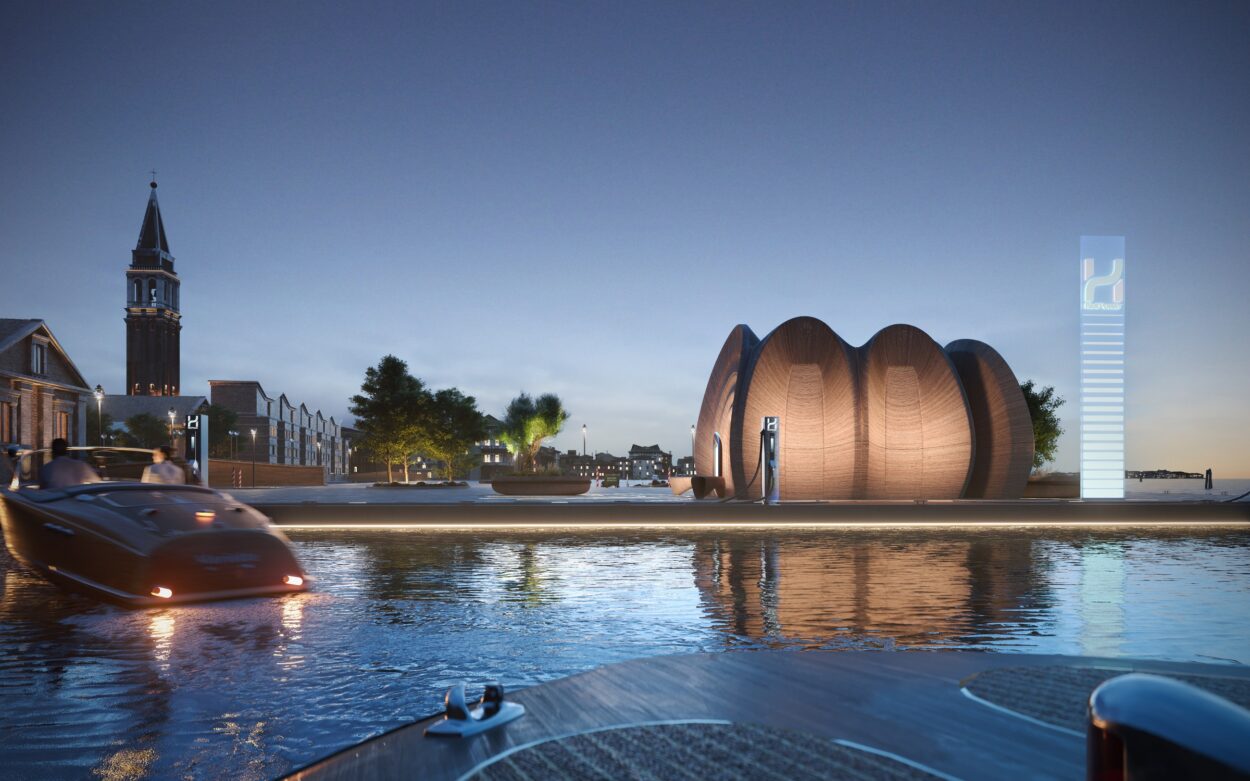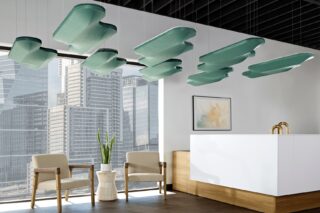Zaha Hadid Architecture is working on the world’s first green hydrogen refueling network for the recreational boating industry for NatPower H.
In a groundbreaking initiative poised to revolutionize the recreational boating industry, NatPower H, a leading global developer of green energy technologies, has announced plans for the world’s inaugural green hydrogen refueling infrastructure. Teaming up with Zaha Hadid Architects (ZHA), this ambitious project will see the installation of hydrogen refueling stations across 25 marinas and ports in Italy.
The €100 million investment spearheaded by NatPower H, a subsidiary of the NatPower group, signifies a pivotal step towards meeting the escalating demand for sustainable power sources worldwide. Slated to commence installation in the summer of 2024, the initiative aims to deploy 100 refueling stations throughout the Mediterranean within the next six years, with further expansion anticipated in key boating regions globally.
Green hydrogen, produced through renewable sources such as wind and solar energy, offers a clean alternative to traditional fuels, emitting only water vapor and warm air. By harnessing NatPower H’s innovative technologies, this initiative is projected to eliminate approximately 45,000 tons of greenhouse gas emissions annually from recreational boats traversing the Mediterranean.
Fabrizio Zago, Group CEO of NatPower, highlighted the significance of hydrogen as a catalyst for driving the industry’s energy transition.
“Hydrogen emerges as one of the most efficient solutions to propel the shift towards sustainable boating,” Zago stated. “Its utilization through fuel cells and electric motors offers unparalleled performance while upholding environmental integrity.”
The initiative aligns with the burgeoning demand for eco-conscious vessels within the boating sector. With increasing regulations mandating cleaner propulsion systems and the establishment of marine protected areas prohibiting diesel engines, the need for sustainable alternatives has never been more pronounced.

Andrea Minerdo, CEO of NatPower H, underscored the project’s strategic importance in facilitating Italy’s transition to green energy.
“As a global leader in shipbuilding, Italy is primed to lead the charge towards hydrogen-powered boats,” Minerdo remarked. “Our collaboration with 25 Italian marinas and ports lays the groundwork for a widespread network of hydrogen fuel stations, advancing our collective commitment to a greener future.”
Partnering with ZHA, renowned for its innovative architectural designs, NatPower H aims to construct eco-friendly refueling stations tailored to the unique needs of each location. Utilizing modular systems and advanced construction techniques, these stations will be both adaptable and sustainable, echoing the natural beauty of Mediterranean landscapes.
Filippo Innocenti, Director of Zaha Hadid Architects, emphasized the project’s integration of cutting-edge construction methods with ecological principles.
“Our collaboration with NatPower H signifies a paradigm shift in sustainable infrastructure,” Innocenti noted. “By leveraging low-carbon materials and circular construction techniques, we are setting a new standard for environmentally responsible design.”
In a testament to the initiative’s momentum, NatPower H has forged partnerships with leading yacht builders, including Bluegame, to develop hydrogen-powered vessels for the upcoming 37th America’s Cup in Barcelona. This strategic alliance underscores the transformative potential of green hydrogen in shaping the future of recreational boating.
As the world’s first green hydrogen refueling network takes shape, NatPower H and Zaha Hadid Architects are poised to redefine the boating industry’s environmental footprint, paving the way for a more sustainable maritime future.
With innovation at its helm and sustainability as its compass, the journey towards greener seas has well and truly begun.










